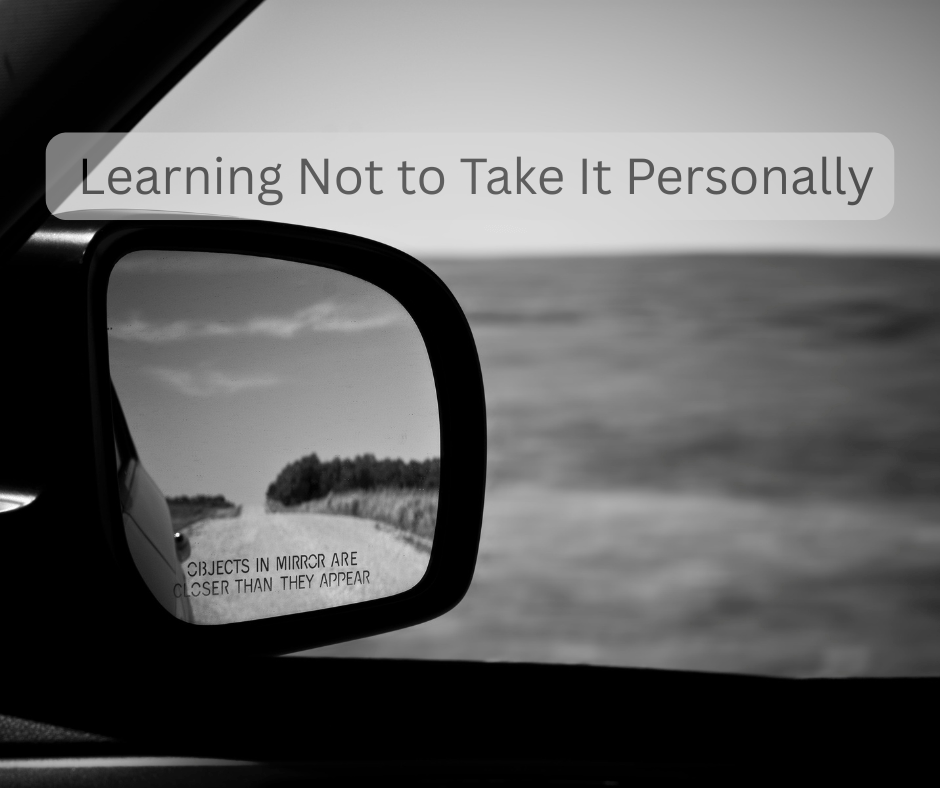Life Is Hard—But So Are We: Learning Not to Take It Personally

There is something incredibly humbling about surviving the worst day of your life—only to wake up again and realize the world keeps spinning as if nothing happened. Whether you are battling cancer, grieving a loss, or just trying to make it through the day without breaking down, the truth is simple and brutal: everyone is carrying something.
That is why I believe, deeply, that life is too short and too sacred not to support each other.
We Never Know What Someone Is Going Through
That person who snapped at you in traffic? They might be on their way to say goodbye to someone in hospice. The coworker who seems distant and cold? Maybe they are quietly unraveling at home, piecing themselves together just enough to show up. We assume so much based on the surface—but we are all just trying to survive this thing called life with as much grace as we can muster.
This belief hit even harder for me after being diagnosed with Glioblastoma. You learn to notice the invisible battles. The way someone’s eyes glaze over when their mind is somewhere else. The tension in a handshake. The silent scream behind someone’s smile.
It all matters. And we all matter more when we treat each other like we do.
The Wisdom of Don Miguel Ruiz: “Don’t Take Anything Personally”
One of the books that has stayed with me through thick and thin is The Four Agreements by Don Miguel Ruiz. I recently reread it, and like always, the third agreement hit me the hardest: Don’t Take Anything Personally.
Ruiz writes:
“Nothing other people do is because of you. It is because of themselves.”
I want to believe this. I try to believe this. But the truth? I take everything personally. The offhand comment. The ignored text. The unreturned favor. My brain starts writing novels about how I must not be enough. It is exhausting.
Ruiz explains that when we take things personally, we are actually giving others power over us. We are allowing their words, moods, and projections to shape our self-worth. And that is a dangerous way to live.
He says:
“Even when a situation seems so personal, even if others insult you directly, it has nothing to do with you. What they say, what they do, and the opinions they give are according to the agreements they have in their own minds.”
That perspective is hard to absorb, especially if, like me, you were wired from a young age to feel like you had to read the room and respond to everyone's moods. When you grow up having to anticipate hurt before it arrives, it is a survival mechanism that does not just disappear.
But Ruiz gives us a roadmap—one that starts with this liberating truth: what others say and do is a reflection of them, not a definition of you.
Why Is This So Hard?
Here is what I think. Taking things personally often stems from deep empathy and sensitivity. We care. We feel things deeply. We want to connect, to be understood, to feel safe in relationships. When that does not happen, we turn the pain inward. We think we did something wrong.
Ruiz warns us against this trap, saying:
“You take it personally because you agree with whatever was said. As soon as you agree, the poison goes through you, and you are trapped in the dream of hell.”
That one line stopped me cold: you are trapped in the dream of hell.
Because that is what it feels like, does it not? When you obsess over a comment, replay a rejection, or assume the worst about your worth—it is hell. And the worst part? Most of the time, the other person has no idea they even triggered you.
So How Do We Stop Taking It Personally?
This is not something you fix overnight, especially if it is rooted in trauma or years of people-pleasing. But here is what I have learned, and what Ruiz encourages:
1. Return to Yourself
Whenever I feel triggered, I now pause and ask: Is this really about me, or about something they are projecting? More often than not, it is about them. And even if it was about me, I ask: Do I want to let this define my worth today?
2. Assume Innocence
Ruiz calls this “impeccability.” If someone lashes out, try to assume they are acting from their own fear or pain—not from a desire to harm you. This takes practice, but it softens the blow and builds compassion.
3. Stay in Your Lane
One of the most grounding tools I use is the reminder: Stay in your business. There is their business, your business, and life’s business. You can only control your own.
4. Release the Story
Do not write a novel when you can ask a question. Instead of spiraling over what someone said or did, check in. Communicate. Clarify. Do not let imagined stories become real wounds.
We Are All Here Just Trying to Make It
In a world that often feels unkind, your softness is not a weakness. Your empathy is not a flaw. But learning to protect your peace, to believe Ruiz’s words when he says nothing is personal—that is where your freedom lives.
If I could leave you with one thought, it would be this:
We are not responsible for how others see us, only for how we choose to see ourselves.
And maybe, just maybe, we can all try to show up for each other with a little more grace. A little more patience. A little less assumption.
Because everyone is fighting a battle you cannot see.
And sometimes, just being kind is enough.


 NEW ARRIVALS
NEW ARRIVALS APPAREL
APPAREL GIFT AND HOME
GIFT AND HOME COLLECTION'S
COLLECTION'S HOPE HUB
HOPE HUB BLOG
BLOG




💕💕